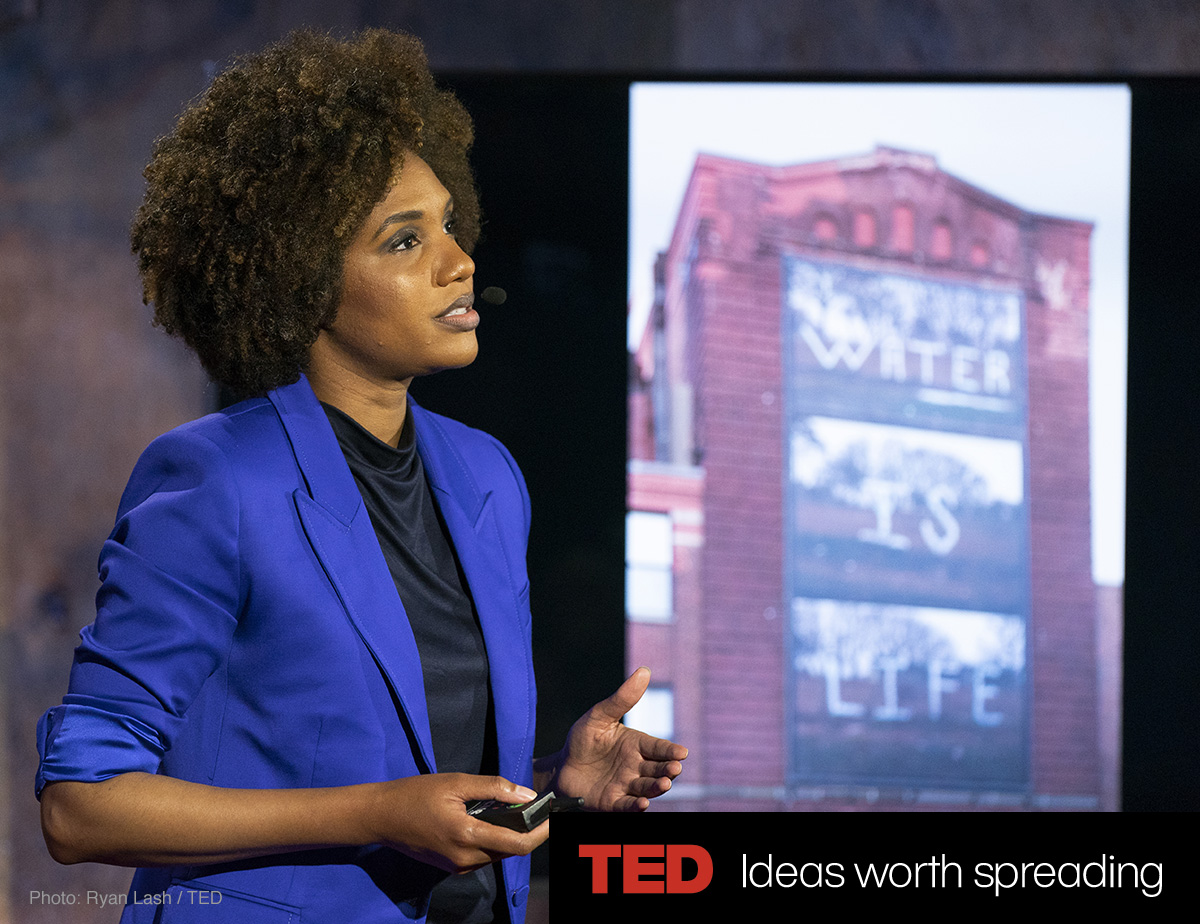The sisterhood behind Flint’s bottled fence
Flint Side
By Xzavier Simon

FLINT, Michigan — Countless numbers of Flint residents have driven by the #waterislife and #nofilter water bottle display, stuck in the worn fences between West Pierson Road and Sussex Drive. It was a message, a symbol of hope, and a battle cry for Flint residents caught in the war with state and local governments about the Flint Water Crisis. We know on April 25, 2014 Flint switched the water supply from Detroit to Flint after 50 years. We know pediatric studies showed elevated lead levels in Flint children.
But what we don’t know is the story of two courageous women, who in the midst of a man-made water crisis, were responsible for those two displays of resilience as part of their local artist collective called the Sister Tour.
Created in 2017, the Sister Tour harnesses the life stories of Amber Hasan and Shea Cobb, as they, like many Flint residents, have lived life with lead in their water since 2014. The tour was their response to a crisis that ravaged their city, shifting the scene from a growing conscious creative collective to a war-torn community. The tour seeks to re-establish sisterhood by giving Flint women of color a platform for their creative expression and freedom, even if that means babysitting for a couple of hours or offering a listening ear.
“I’m gonna to hit up my sister, if I needed some advice,” explains Hasan. “If I need somebody to watch my kids, I’m gonna hit up my sister. Within this, is being able to help women, artists, and entrepreneurs with just those things.”
Hasan and Cobb are mothers themselves while also balancing the dynamic of being creatives of every sort. Hasan, 38, is an entrepreneur and creative mastermind behind The Loud Mouth Ghetto Girl, a stage name she created in 2016 to perform her conscious raps and One Woman Show around the city. Cobb, 35, under the stage name Phire Sis, is a songstress, poet, and author of her poetry book “Travels In My Car.” The duo met in the early ’90s when they were growing up in the same neighborhood and became like sisters. They both graduated from Southwestern Classical Academy in different years, Hasan in 1999 and Cobb in 2003.
“Amber and myself had been putting on shows, being a part of that community and involving people around us and culture and art,” Cobb said. “We had found a way to make money move amongst us as women. We [are able to] give women this phenomenal platform.”
Together Hasan and Cobb caught the attention of photojournalist and MacArthur Genius Grant winner LaToya Ruby Frazier who spent a five-month stint in 2015 documenting the effects of the Flint Water Crisis for her Elle magazine photo essay. Cobb and Hasan were her main connection, welcoming Frazier into the intimate moments of their families, their jobs, and their art. But there were several moving parts. Hasan was planning to go to Puerto Rico to visit family and Cobb was working as a Flint community school bus driver with plans to move to Mississippi where her family was from. Through it all, their bond with Frazier grew.
“She became a [sister] to us,” said Hasan in reflection. “She asked us what do we need as artists? What would make it easier for us to do our work? So she gifted us.”
Frazier’s work was published in August 2016. Hasan and Cobb saw the acclaim received from the photo essay and it solidified their artistic mission. Frazier gave them a platform and they wanted to do the same for other women.
Courtesy of: Flint Side

